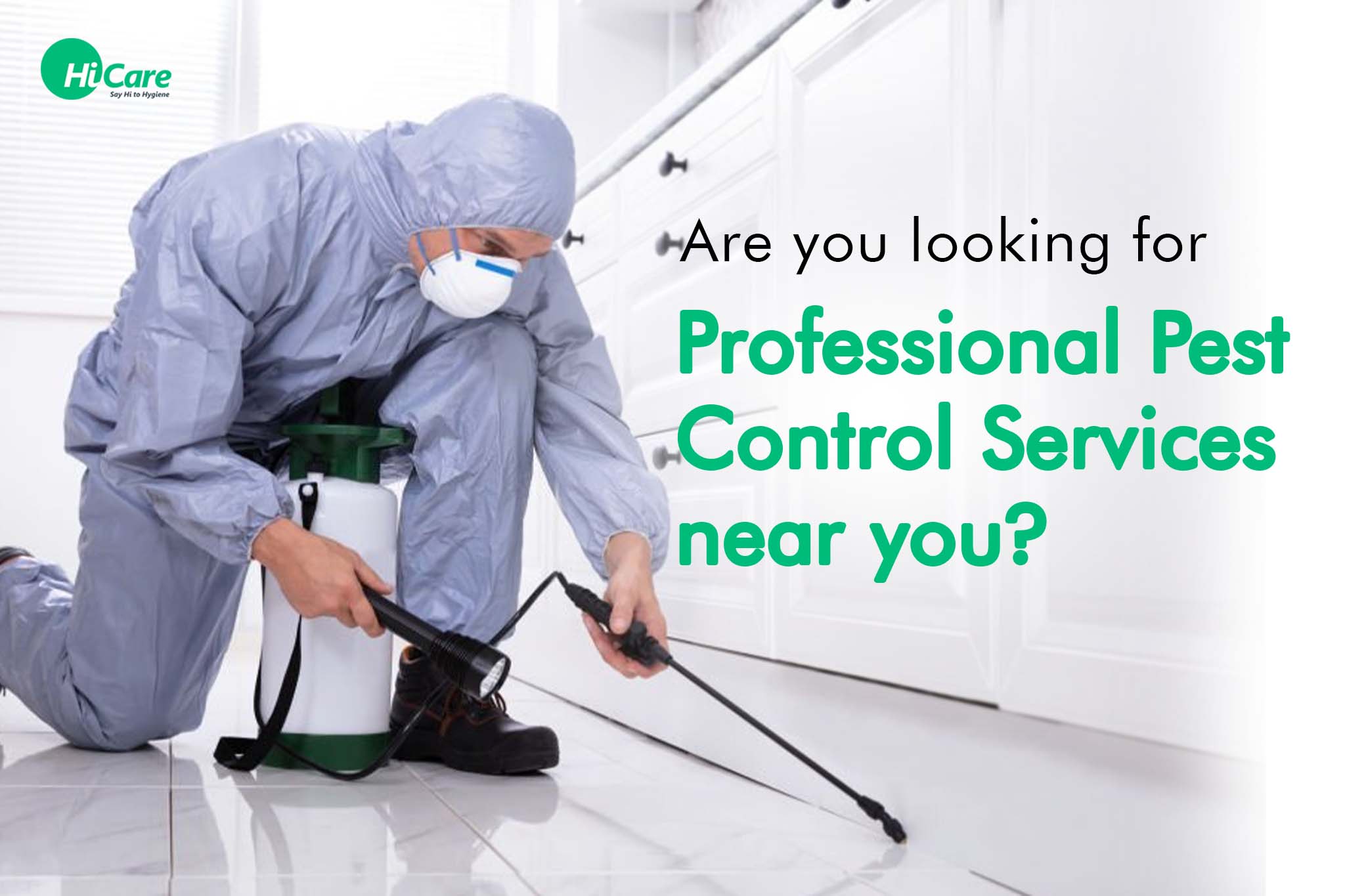Comprehending the Different Approaches to Insect Control: A Comprehensive Overview

All-natural Parasite Control Methods
Employing environment-friendly strategies such as buddy growing and biological insect control is vital for effectively handling pests in agricultural settings. Buddy growing involves growing various crops in proximity to discourage bugs, boost nutrient uptake, and improve general crop health and wellness.
Biological insect control entails presenting natural killers or microorganisms to regulate pest populations. Ladybugs, for example, prey on aphids, controlling their numbers without the demand for chemical pesticides. An additional example is using Bacillus thuringiensis (Bt), a germs that targets particular insect pests while being harmless to humans, animals, and helpful pests.
These environmentally friendly methods not only minimize the dependence on artificial chemicals however likewise aid maintain biodiversity and soil health and wellness. By incorporating all-natural pest control approaches into farming techniques, farmers can achieve sustainable bug monitoring while lessening negative influence on the environment.

Chemical Bug Control Solutions
Along with all-natural parasite control methods, the utilization of chemical insect control services plays a considerable function in properly handling pest populations in agricultural environments. Chemical pest control solutions are developed to target certain parasites that may cause substantial damage to plants. These services frequently have artificial pesticides that are made to eradicate insects rapidly and efficiently.
One of the essential advantages of chemical parasite control solutions is their effectiveness in regulating parasite problems widespread. Farmers can use these options utilizing various approaches such as splashing, fumigation, or seed treatment to safeguard their crops from dangerous insects, weeds, and diseases. Furthermore, chemical pest control services are reasonably very easy to apply and can provide quick outcomes, aiding farmers protect their returns and decrease economic losses.
Nevertheless, it is necessary to use chemical insect control services carefully to decrease potential negative effects on the atmosphere, non-target microorganisms, and human health and wellness. Proper application techniques, adherence to safety guidelines, and regular surveillance are important to make certain the liable use chemical bug control remedies in agricultural techniques.
Biological Insect Control Approaches
Organic parasite control comes close to take advantage of all-natural predators or microorganisms to handle pest populations in farming setups successfully. This technique uses a eco-friendly and sustainable remedy to pest administration, reducing the reliance on synthetic chemicals and decreasing injury to the setting. One usual biological control technique is the introduction of natural adversaries, such as ladybugs or parasitic wasps, to target certain insects. These killers prey on the bugs, aiding to control their populaces naturally - pest control clovis.
Another biological control technique involves using microorganisms like fungi, microorganisms, or viruses to infect and kill bugs. These microbial representatives can be splashed on crops or introduced right into the soil to combat various pests without harming advantageous bugs or other wild animals. In addition, making use of scents to interrupt the mating patterns of insects is another effective organic control technique. By disrupting their reproduction, this approach helps to reduce pest populations without the demand for chemical intervention. Generally, biological pest control methods provide a lasting and targeted option to pest administration in agriculture.
Integrated Insect Management (IPM)
Integrated Bug Management (IPM) is a comprehensive strategy that combines numerous pest control methods to efficiently take care of and minimize pest populations in farming systems. IPM focuses on long-lasting avoidance of insects find more information with a mix of biological, cultural, physical, and chemical control approaches. By integrating these different strategies, IPM aims to minimize dependence on chemical pesticides, minimize environmental effect, and advertise sustainable insect administration techniques.
One key aspect of IPM is making use of organic controls such as natural predators, parasites, and microorganisms to manage pest populations. This method takes advantage of the power of nature to maintain an equilibrium between pests and their natural opponents without triggering injury to the setting.
Additionally, IPM involves cultural methods like plant turning, environment, and hygiene adjustment to develop unfavorable check out here problems for pests and disrupt their life process. Physical controls such as catches, composts, and obstacles are likewise utilized to stop pest problems.
Mechanical and Physical Insect Control Techniques
Making use of non-chemical approaches, such as physical and mechanical bug control methods, is a crucial facet of thorough bug administration techniques, building upon the structure of Integrated Parasite Monitoring's alternative method. Mechanical parasite control includes making use of physical obstacles or traps to avoid parasites from accessing and harming crops or frameworks. This technique can include strategies like setting up screens on home windows, using row covers in farming, or utilizing sticky traps to capture insects.
Physical pest control techniques, on the other hand, concentrate on directly eliminating insects via physical ways. Utilizing warm treatments to remove bed bugs or vacuuming up bugs like ants or spiders can be reliable methods to take care of infestations without the usage of chemicals. By including these physical and mechanical insect control strategies right into an Integrated Parasite Administration strategy, individuals and experts can decrease dependence on chemicals while still successfully reducing and handling pest populaces damage.
Final Thought

In addition to all-natural bug control methods, the usage of chemical pest control remedies plays a substantial function in effectively taking care of pest populations in farming atmospheres.One of the key benefits of chemical insect control solutions is their performance in controlling pest invasions on a large range.Integrated Insect Monitoring (IPM) is an extensive approach that integrates various bug control techniques to properly handle and reduce pest populaces in agricultural systems.Using non-chemical approaches, such as mechanical and physical parasite control methods, is an essential facet of comprehensive bug management techniques, constructing upon the structure of Integrated Pest Administration's all natural approach. By integrating these physical and mechanical pest control methods right into an Integrated Pest Management plan, people and professionals can minimize dependence on chemicals while still effectively reducing and handling pest populaces damages.